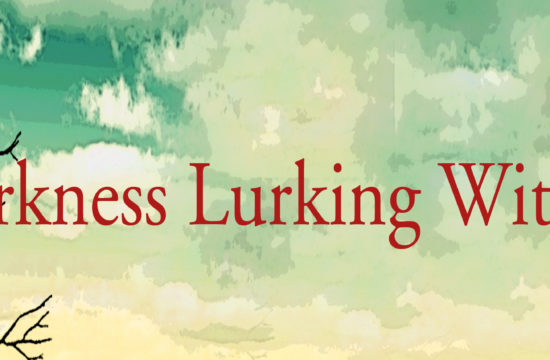Pape Mawade Sylla
PhD in English Literature, Faculty of Arts and Social Sciences (UCAD), Cheikh Anta Diop University of Dakar – SENEGAL
INTRODUCTION
According to the Merriam-Webster’s Collegiate Dictionary, stereotype stands for something conforming to a fi xed or general pattern; especially a standardized mental picture that is held in common by members of a group and that represents an oversimplifi ed opinion, prejudiced attitude, or uncritical judgment1. In the history of race relations in the United States, stereotypes preceded and accompanied the origins and legalization of the caste system and racial discrimination. In fact throughout the course of American history, deep-set stereotypes subverted Black identity and have seriously affected the formation of a biracial society based on egalitarian principles. So this article will study the war over identity in order to understand the conditions of the black community in a society mainly racist whose conception of race is based on preconceived prejudices and also understand the psychology of the black race at the turn of the twentieth century.
Whites, first, viewed the black man as a subhuman with no valid culture and someone who needed civilization even though it meant dragging him in chains into civilization and Christian religion. Their intentions were to deny the black man the elementary rights a human being is entitled and to justify the slave system and racial discrimination. As a result white rulers developed an arsenal of arguments based on stereotypes to affirm slavery as a necessary means of race relationship.
Those arguments were mainly based on the origins of blacks and their original land, Africa. As portrayed in many pro-slavery writings Africa is seen and has always been seen as the continent of savagery, cannibalism, devil worship and licentiousness. With such conceptions, black slaves from Africa could not have the same status as whites who were their masters and as a result whites had the rights to exercise full power on their black subjects. As showed by Charles E. Hurst:
White colonist commonly believed that the blacks were inferior to whites; these thoughts helped justify slavery and the institution of many laws that continually condoned inhuman treatment and perpetuated the keeping of blacks in a lower socio-economic position (2007, p17).
However, after the Emancipation Proclamation and the abolition of slavery, the same stereotypes continued to deprive blacks of civil and political rights, thus hindering their integration into the American mainstream and confi ning them to a second slavery. Those stereotypes have affected deeply the psychology of the blacks who resorted to hiding their true-self in order to become integrated in the American society. Many black intellectuals and writers’ duty was to turn the new century’s image of the black away from the stereotypes and racial prejudices scattered throughout African-American experience in the United States. Therefore some black writers chose to answer the Negrophobia of whites and show the true image of blacks and to defend the cause of the freedmen. The souls of black Folk (1903) is one of the most outstanding works they produced.
In this collection of socio-political essays W.E.B. DuBois depicts emotionally the precarious social, economic, and political conditions of the newly- freed black in America and particularly in the Southern states. He also articulates the social and psychological effects that stemmed from those stereotypes. The Souls of Black Folk is not a book that can be read in ignorance of its historic milieu. It was written in an America where whites only grudgingly accepted the idea that blacks had soul. The image most white Americans had of blacks was stereotypical and was deeply rooted in the dogma of the inferiority of blacks. The images of the African-Americans revolved around a conception of primitivism; blacks were seen as lazy, irresponsible, cunning, rebellious, untruth worthy, savage and ignorant.
In the opening chapters of the book, DuBois argues that black Americans are “born with a veil”(45), and he suggests that while blacks can, and indeed, must understand and participate in the perspectives of the white dominant culture, whites can only see things from their own stereotypical point of view. Whites create their own images of blackness and are blind to how different these images are far from the reality of black life which remains fi guratively invisible to them behind its veil. Therefore the author maintains that to better know the black character and consider the stereotypes that he is subject, we have to initiate an intimate contact with the black masses; they differ widely in training and culture, thus his journey on the area of Black Belt, Georgia.
According to DuBois, the direct heritages of the slave system in the South were poverty and ignorance and the latter were emphasized or brought to a crisis by Emancipation. Throughout the book, DuBois analyses the plight of the newly-freed Negro and argues that the white stereotypes have shaped it and have also enforced the negative attitudes and images of blacks. Behind DuBois’s social thought lay the oppressive reality of color-caste and the unwillingness or cruelty of whites to see blacks as humans. In fact, the book aptly illustrates the situation of the black tenant farmer who lives so close to the wealth of cotton, but is compelled to poverty through ‘debt’ in the peonage system of the white capitalists. The author asserts that whites used ‘debt’ to keep blacks at work and to label them ‘idler’. In the essays, DuBois agrees with the common thought of the merchants that in order to keep the ‘listless’ and ‘lazy’ at work, some pressure was needed. However he justifi es that black people’s poverty is the result of the white labor system and he adds that it is the root of the stereotypes of blacks as lazy listless and idler; as he writes:
Without doubt, some pressure was necessary at the beginning of free labor market to keep the listless and lazy at work. And this must be added, the obvious fact that a slave ancestry and a system of unrequited toil has not improved the efficiency or temper of the mass of black laborers. Nor is this peculiar to Sambo (175).
In this above quote DuBois explains that the practice of peonage system was not aimed to confront the stereotypes of the blacks but it was rather aimed to increase the profit of the whites; and he argues that it highlights the hypocrisy and greed of the white people. For this system only enriches the white merchants and keeps the black tenant farmer at a state of despair and hopelessness. As Cornel West corroborates with DuBois and writes:
The problematizing of black people humanity deprives black people of individuality, diversity, and heterogeneity. It reduces black folk to abstractions and objects born of white fantasy and insecurities, as exotic or transgressive entities, as hypersexual or criminal animals (1996, 85).
Throughout Souls, DuBois explains that black inferiority is stipulated in white American’s mind as spiritual that God created the Negro race for inferiority because that creature was middle-way between men (whites) and cattle as he writes: “… somewhere between men and cattle, God created a ‘tertium quid’, and called it a negro…”( 122) So, white men envisioned to Christianize them and made them believe that they must be submissive and accept their fate as a natural or spiritual order and that any attempt to subvert it would be sinning. In fact, since whites knew that blacks were religious, they used religion to shape their ideal slave that is supposed to be faithful and submissive to whites.
Ironically, DuBois traces back the religious faith of blacks to Africa to refute the white stereotypes of blacks as heathens by praising the religious organization of blacks that transcended from Africa. He asserts that religion has always been a crucial part and has ever been present in Negro life, and he shows that Africa which has been seen as a land of savagery and licentiousness has given birth to the “Negro Church” which is the embodiment of Negro’s culture and civilization as he outlines:
First, we must realize that no such institution as the Negro church could rear itself without definite historical foundation. These foundations we find if we remember that the social history of the negro did not start in America. He was brought from a definite social environmental. The polygamous clan life under the headship of the chief and the potent influence of the priest (215).
Some stereotypes are designed to justify vocational segregation and discrimination: the argument as to the Negro’s innate intellectual inferiority, the unreliability, and his laziness is used for this purpose. The stereotype of the childish, immature, and servile has been used to justify the denial of full rights; ignorance has been used to keep the Negro under a second slavery and later as a second class citizen.
In fact throughout his work, DuBois refutes the long standing stereotype of ignorance through which whites intended to disfranchise blacks. He asserts that whites, out of hypocrisy, considered the black man as incapable of education. He blames whites for not giving educational opportunities in order to wipe out ignorance. Thus, DuBois stresses the point that whites did it on purpose to increase the ignorance of blacks in order to use that same stereotype to deny them civil and political rights. In so doing, DuBois attacks the stereotype of the Negro’s innate intellectual inferiority and pays tribute to some black intellectuals such as Banneker, Derham, and Douglass for their intellectual achievement. And he emphasizes that no matter how little education was available they managed to assert themselves and represent the aims and ideals of the Black community.
CONCLUSION
Still today, the major problem of the black man in America is the quest of identity which is the result of hundreds of years of slavery and racial discrimination. The mere fact, that the black man was a slave, was enough to deny his human rights and values and his acceptance by the whites as a social equal for a long time. Thus condemned to a hopeless state of degradation and inferiority, the black man became gradually estranged from his original culture and he ends up believing in his own inferiority as a human being. Indeed to respond to their psychological oppression in Western society African-Americans would have to ground themselves in African or Black culture. Surrounding themselves with positive images of African and Black culture and history would allow them to defl ect negative images of themselves. The confl ict between their own culture and the American culture could be transcended by immersing themselves simultaneously in African or Black culture and incorporating positive aspects of Western society.
BIBLIOGRAPHY
ALAIN, F. Poussaint. 1969. New York: A Signet Classic.
ARNOLD, Rampersad. 1990. The Art and Imagination of
W. E. B. Du Bois. New York: Schocken.
ASANTE, Molefi Kétè. 1987. The Afrocentric Idea.
Philadelphia: Temple University Press,
DUBOIS W.E.B. 1903. Dubois W.E.B. The Souls of Black
Folk.. Introd. Dr. Nathan Hare.
GATES, Henry Louis Jr. and Cornel West. 1996. The
Future of Race. New York: Alfred A. Knopf.
HURST, Charles E. 2007. Social Inequities: Forms, Causes,
and Consequences. 6 Boston: Peason Education, Inc.
TRAORE. M. Lamine. 2008. Double Consciousness in
The Soul of Black Folks (1903) by W.E.W. Bois. M.A
Dissertation.
WEST, Cornel. 1993. Race Matters. Boston: Beacon Press,
WEBOGRAPHY
http://www.Jstor.org Bradwin Stanley. Journal of Black
Studies. 2.3 (1972) pp:301-321, consulted the 5th of
April 2022.
http://www.Jstor.org Dickens D. Bruce. « W.E.B. Dubois
and the Idea of Double-consciousness ». Journal of Black
Studies. 64.2 (1992), consulted the 5th of April 2022.











